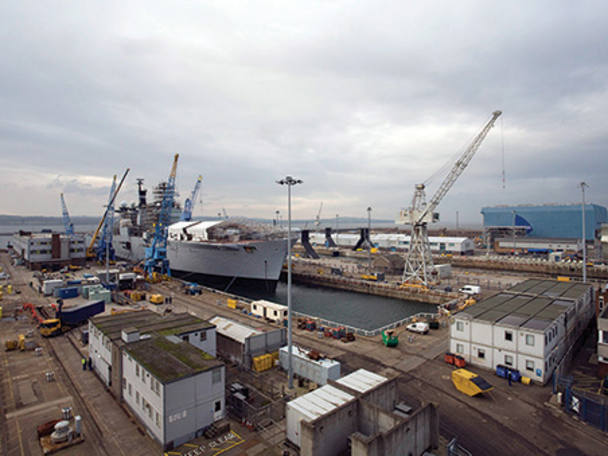Auguries for Babcock 's (BAB) outsourcing market remain positive both at home and abroad, as the group revealed an encouraging set of metrics and operational outcomes for its March year-end. Headline numbers were broadly in line with consensus forecasts, with operating profit 5 per cent to the good once amortisation charges are discounted. Management expects revenue to grow by around 7 per cent in the 2017 financial year, with margins remaining broadly stable.
Babcock's income performance was reassuring - a case of steady as she goes - but what really impresses is the group's ability to manage its cash flows, regardless of the level of capital commitment. Management has continued to efficiently deleverage the balance sheet following a period of acquisition-driven expansion. Babcock has managed this dynamic several times in the past after securing suitable acquisition targets.
Net debt was trimmed in the period under review, helped along by yet another annual cash-conversion rate, before capital expenditure, in excess of 100 per cent. Peter Rogers, Babcock's chief executive, told us that he wouldn't raise a sweat with net debt in the range of 1.5 to three times cash profit. This metric stood at two times at the year-end, down from 2.2 times a year earlier, and is expected to contract to 1.7 times by next March, but you get the impression that managing this cycle is grist to the mill for Babcock.
The order book was unmoved from the prior period at £20bn, although the group put to bed contracts worth £4.8bn during the period. There's also another £10.5bn of potential contracts in the pipeline, which is certainly encouraging given contract win rates of over 40 per cent for new bids and over 90 per cent for rebids - another pointer to efficient housekeeping. And investors can draw confidence from the fact that 78 per cent of revenue is already in place for FY2017.
Longer-term, Babcock's growth prospects on the continent are being driven by the successful integration of the Avincis helicopter business - now Mission Critical Services (MCS) - that was acquired in 2014. It always takes time to gain traction in new markets, but MCS has enjoyed early success, including a five-year deal to provide airport fleet management support services for Alitalia at Rome Fiumicino Airport.
Stifel anticipates adjusted pre-tax profit of £505m for year to March 2017, leading to EPS of 82.1p (74.2p in FY2016).
| BABCOCK INTERNATIONAL (BAB) | ||||
|---|---|---|---|---|
| ORD PRICE: | 1,017p | MARKET VALUE: | £5.13bn | |
| TOUCH: | 1,016p-1,017p | 12-MONTH HIGH: | 1,152p | LOW: 840p |
| DIVIDEND YIELD: | 2.5% | PE RATIO: | 18 | |
| NET ASSET VALUE: | 464p* | NET DEBT: | 52% | |
| Year to 31 Mar | Turnover (£bn) | Pre-tax profit (£m) | Earnings per share (p) | Dividend per share (p) |
|---|---|---|---|---|
| 2012 | 2.85 | 173 | 42.9 | 22.7 |
| 2013 | 3.24 | 182 | 43.9 | 26.3 |
| 2014 | 3.55 | 219 | 50.1 | 21.4 |
| 2015 | 4.00 | 313 | 52.9 | 23.6 |
| 2016 | 4.16 | 330 | 57.0 | 25.8 |
| % change | +4 | +5 | +8 | +9 |
Ex-div: 30 Jun Payment: 12 Aug *Includes intangible assets of £3.23bn, or 640p a share | ||||









